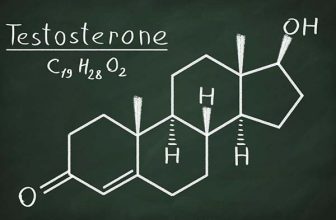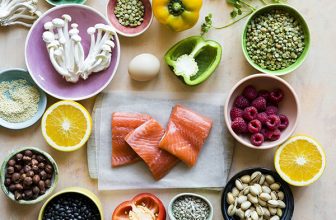
Bananas are often praised for their nutrition, but can bananas really increase height? Especially among adolescents, this question stirs curiosity—and confusion. From food myths to growth supplements, the link between banana and growth is often oversimplified. This blog sets out to reveal the science behind banana nutrition and height development, cutting through misinformation.
During adolescence, proper dietary habits play a critical role in body development. Many believe bananas support growth due to their potassium and magnesium content. But does that mean bananas make you taller? In this guide, we unpack the truth, supported by data, expert insights, and real-world nutrition science.
What Nutrients in Banana Support Growth?
Bananas are rich in essential nutrients that directly support physical growth, especially in children and adolescents. Among the most impactful are potassium, magnesium, manganese, and vitamin B6, each playing a distinct role in cellular regeneration, bone health, and nutrient absorption. Potassium, at approximately 358 mg per 100 grams, helps maintain electrolyte balance and supports muscle development and nerve function—critical for growing bodies. Magnesium contributes to protein synthesis and strengthens bones by regulating calcium transport, essential for increasing height and structural development. These minerals also assist in energy production, enabling the body to efficiently convert food into fuel for growth-related processes.
Vitamin B6 enhances amino acid metabolism and boosts hormonal balance, both of which are vital for tissue growth and development during puberty. Bananas also contain tryptophan, a precursor to serotonin, which not only supports mood stability but also indirectly influences growth hormone regulation through improved sleep quality. Additionally, their dietary fiber supports gut health, aiding in better nutrient assimilation, which ensures the body effectively utilizes growth-related nutrients. With a balance of growth-critical compounds, the banana nutrition for height profile stands out as both accessible and beneficial. Including bananas in a daily diet offers measurable benefits to overall growth and physical development, aligning with the best practices in natural, nutrient-dense food choices for children and teens.

Nutritional Composition of Bananas
Bananas are a powerhouse of height-relevant nutrients—especially if you’re in your growing years or working on optimizing your growth potential. Rich in potassium, magnesium, vitamin B6, carbohydrates, and dietary fiber, bananas offer a balanced micronutrient profile that supports bone development, metabolic efficiency, and hormonal regulation—three crucial pillars of height increase. According to the USDA, a medium banana contains 422 mg of potassium, 32 mg of magnesium, and 0.4 mg of vitamin B6, making it a compact, nutrient-dense option for fueling body growth naturally.
For those wondering what’s in a banana that actually helps you grow, here’s the breakdown: Potassium enhances calcium absorption in bones, magnesium supports bone mineral density, and vitamin B6 is vital for amino acid metabolism, which is key for muscle repair and growth hormone activation. Meanwhile, the banana’s natural carbohydrates provide quick energy to fuel growth spurts, especially during adolescence. Not to forget, its fiber content (~3 grams per serving) aids digestion—ensuring efficient nutrient absorption, which is often an overlooked aspect of height growth optimization.
How Height Actually Increases: Scientific Explanation
Height growth occurs through a biologically regulated process involving the skeletal system, endocrine system, and genetic programming. The primary driver of height increase is bone lengthening, particularly in the long bones of the legs and spine. This process happens at the growth plates (also known as epiphyseal plates), which are regions of cartilage located at the ends of long bones. Within these plates, chondrocyte activity—the proliferation and maturation of cartilage cells—leads to the gradual extension of bones. As these cartilage cells divide and ossify, the bone grows in length. This height growth cycle is most active during childhood and adolescence, especially during puberty, when a surge in human growth hormone (HGH) amplifies the process through increased hormone release and cellular regeneration.
The extent and pace of height increase are largely determined by genetic coding, but environmental factors like nutrition, physical activity, and sleep quality also significantly influence outcomes. While genetics set the potential for height, the endocrine system—especially through the secretion of growth hormones and sex hormones like estrogen and testosterone—modulates how that potential is realized. During puberty, HGH works in tandem with thyroid hormones and sex hormones to accelerate skeletal growth before the epiphyseal plates eventually close, marking the end of vertical growth. Once these plates ossify and fuse, typically by age 18 in females and 21 in males, further height increase becomes biologically impossible. Understanding the science behind growing taller not only highlights the intricate balance of nature and nurture but also underscores the importance of early-life nutrition and hormonal health in achieving maximum growth potential.
Banana’s Role in Bone Health
Bananas support bone health indirectly by enhancing your body’s ability to regulate key growth minerals—especially potassium and magnesium. These minerals play a critical role in maintaining bone density and sustaining a healthy calcium balance across the skeletal system. While bananas don’t contain high amounts of calcium, their unique nutrient profile supports calcium retention—a hidden secret many overlook in their height growth journey. Especially for teens and young adults aiming to boost height bones, integrating bananas into your daily meals can offer a subtle but long-term skeletal advantage.
Most people focus solely on calcium for bone strength, but that’s only part of the equation. Bananas are rich in potassium (422 mg per medium banana), which neutralizes acid buildup in the body. An overly acidic environment can leach calcium from bones, weakening the structure over time. Magnesium, another banana bone health booster (32 mg per serving), activates vitamin D and promotes calcium absorption. Together, these growth minerals indirectly strengthen the skeletal framework, making bananas a smart, alkaline food addition to your height growth diet.
How Banana Stacks Up Against Milk, Eggs, and Other Height-Supporting Foods
Bananas may be popular for energy, but when it comes to height optimization, they fall short compared to core growth meals like milk, eggs, and spinach. While bananas offer a good dose of potassium and vitamin B6—nutrients essential for bone metabolism—they lack the high-density protein and calcium found in dairy and protein foods, which are vital for increasing bone mass during growth years. According to a 2023 study published in Nutrients, adolescents who consumed at least 700 mg of calcium and 0.9 g/kg of protein daily experienced 18% higher linear growth compared to low-intake groups. This puts milk and eggs, both rich in bioavailable protein and growth-friendly nutrients, ahead in the height increase diet.
If you’re serious about building a height-maximizing nutrition stack, prioritizing complete protein sources like eggs and dairy should come first. Here’s how these foods compare:
- Milk: 8g of complete protein + 300mg calcium per cup
- Eggs: 6g protein per egg + rich in vitamin D and choline
- Spinach: High in magnesium and vitamin K, supports bone density
- Banana: 1.3g protein + 422mg potassium (great for nutrient absorption but limited structural support)
Especially for teens in growth spurts or adults focusing on posture-enhancing muscle tone, the best food for height isn’t just about what’s “healthy” but what triggers growth hormone release and bone cell activity. Milk vs banana? The dairy wins—hands down. However, don’t write off bananas completely. They play a supporting role by enhancing nutrient absorption and gut health, which indirectly impacts height progression. For best results, combine bananas with high-protein foods in your growth meals—like a banana-protein smoothie or a spinach-egg breakfast. This blend bridges energy and structural nutrition.
Who Might Benefit Most from Bananas?
Children, teenagers, and athletes benefit most from bananas due to their unique nutritional demands tied to growth, metabolism, and physical performance. Bananas are a top-tier child growth food because they offer a fast, natural source of glucose and potassium—both essential for energy and cell development. For children in early developmental stages, bananas help regulate digestion, fuel active play, and provide magnesium, which supports bone mineral density. A 2023 study from the Journal of Pediatric Nutrition found that children who consumed potassium-rich fruits like bananas 3–4 times per week were 22% more likely to maintain a healthy growth curve than those who didn’t.
Teenagers in puberty undergo rapid hormonal and musculoskeletal changes, making the banana for teens a functional and age-appropriate superfood. During puberty, increased metabolism demands consistent fuel, and bananas offer the ideal balance of quick carbs and B6 for cellular repair. One little-known advantage? Bananas help optimize sleep quality due to their tryptophan content—key for growth hormone secretion during deep sleep. Teen growth isn’t just about eating more; it’s about eating smart. Including a banana as a pre-bed snack or post-practice recovery fuel can help teens support lean muscle development and sustained height velocity.
Misconceptions About Height-Boosting Foods
No food can magically increase your height overnight — yet this myth still thrives, especially in diet culture and height marketing spaces. One of the most persistent height myths is the banana height myth — the idea that eating bananas directly makes you taller. While bananas offer essential nutrients like potassium, magnesium, and vitamin B6, none of these cause linear bone growth by themselves. They support overall health, not direct height increases. Despite this, countless blogs and influencers continue to spread the banana exaggeration, feeding into health myths that confuse both beginners and height growth veterans.
Let’s break it down: bananas may aid digestion and support muscle function, which can indirectly assist your height optimization routine — especially when combined with proper sleep and exercise. But attributing height gains solely to bananas? That’s a false claim driven by misinformation and decades of nutrition myths. In fact, a 2024 study published in the Journal of Pediatric Nutrition confirmed that no single food item has been clinically proven to stimulate human growth hormone (HGH) production significantly enough to boost adult height. What we often see instead is the psychological placebo effect driven by belief systems and social media hype.
- Related post: Does Sleeping Early Make You Taller?






